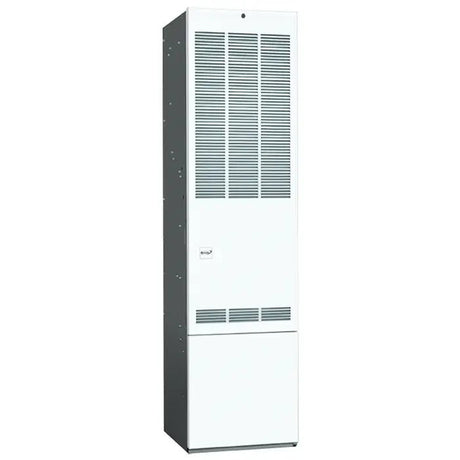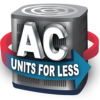An HVAC capacitor is a small but crucial component of your heating and cooling system, responsible for powering the motors that drive your air conditioning unit, furnace, or heat pump. Without a properly functioning capacitor, your system would struggle to start or run efficiently, leading to potential breakdowns or costly repairs.
In this article, we’ll dive into what an HVAC capacitor does, the different types available, common signs of a failing capacitor, and why it’s essential for maintaining a healthy and efficient HVAC system.
What is an HVAC Capacitor?
A capacitor in an HVAC system stores and releases electrical energy to power the system's motors. These motors include the compressor, blower fan, and outdoor fan motor, which are responsible for moving air and refrigerant throughout the system. The capacitor provides the necessary "jolt" of energy to start these motors and helps them run efficiently once they’re operating.
Capacitors work by collecting energy and releasing it in short bursts, ensuring that the motor receives the power it needs to either start or run consistently.
Types of HVAC Capacitors
There are two main types of capacitors used in HVAC systems:
1. Start Capacitors
Start capacitors provide a quick, powerful boost of energy to help HVAC motors get started. They temporarily engage when the system is first turned on and disengage once the motor reaches the desired speed. These capacitors are vital for compressor motors and fan motors that require a significant amount of power to start.
2. Run Capacitors
Run capacitors provide a steady, consistent flow of energy to the motor while it is running. Unlike start capacitors, which only function during startup, run capacitors stay engaged throughout the system’s operation. They are essential for keeping your blower fan or compressor running efficiently and without interruptions.
Why is the HVAC Capacitor Important?
The capacitor ensures that your HVAC system’s motors receive the power they need to function properly. Without it, the motors could struggle to start or fail to maintain speed, which can lead to various issues, including:
-
Hard Starts: The system struggles to turn on, or there are delays when the unit powers up.
-
System Overheating: If the capacitor isn’t delivering enough power, motors may overheat due to overwork.
-
Inefficiency: A malfunctioning capacitor can cause the system to run inefficiently, leading to higher energy bills.
Signs of a Failing HVAC Capacitor
Capacitors can wear out over time due to age, electrical surges, or extreme heat exposure. When a capacitor begins to fail, your HVAC system will display certain signs that it’s time for a replacement:
-
System Won’t Start: If your HVAC unit is having trouble starting or doesn’t start at all, the capacitor could be failing.
-
Humming Noise: A humming noise from the outdoor unit or blower motor may indicate that the capacitor is struggling to start the motor.
-
Intermittent Operation: If your HVAC system turns off unexpectedly or fails to maintain consistent operation, a faulty run capacitor could be the cause.
-
Burning Smell: A failing capacitor may overheat, producing a burning smell around the unit.
-
Bulging or Leaking Capacitor: Physically inspecting the capacitor for bulging or signs of leaking fluid can indicate it’s damaged and needs replacement.
Replacing an HVAC Capacitor
Replacing an HVAC capacitor is generally straightforward for a qualified technician. However, because capacitors store electrical energy, it’s important to handle them with caution to avoid electric shock. It’s highly recommended that you consult a professional HVAC technician to diagnose and replace a faulty capacitor safely.
How Long Do HVAC Capacitors Last?
Most HVAC capacitors are designed to last between 10 and 20 years, depending on factors such as usage, system load, and environmental conditions. Regular maintenance and system check-ups can help prolong the life of your capacitor and avoid sudden system failures.
Why HVAC Capacitors Fail
There are several reasons why an HVAC capacitor may fail prematurely:
-
Age: Over time, capacitors naturally wear out and become less effective.
-
Heat Exposure: Excessive heat can degrade the capacitor’s materials, especially if the unit is located in an area with high ambient temperatures.
-
Voltage Surges: Electrical surges or spikes in power can damage the capacitor, leading to a shorter lifespan.
-
Overwork: If your HVAC system frequently cycles on and off, it may cause the capacitor to overwork, leading to burnout.
How to Prevent Capacitor Failure
While HVAC capacitors will eventually wear out, regular maintenance can help prolong their life and prevent premature failure:
-
Schedule Routine HVAC Maintenance: Have a professional inspect and maintain your HVAC system at least once a year. This can help identify potential capacitor issues before they become serious problems.
-
Ensure Proper Ventilation: Keeping your outdoor unit clear of debris and ensuring proper airflow will reduce heat buildup and stress on the capacitor.
-
Use a Surge Protector: Installing a surge protector for your HVAC system can help prevent voltage spikes from damaging the capacitor and other components.
Conclusion: HVAC Capacitors Are Key to Your System’s Performance
An HVAC capacitor may be a small component, but it plays an essential role in the performance and efficiency of your heating and cooling system. A properly functioning capacitor ensures that your system’s motors receive the power they need to start and run smoothly. Regular maintenance and timely replacement of failing capacitors can help prevent system breakdowns and costly repairs.
If you suspect your HVAC capacitor is failing or need a replacement, visit Acunitsforless.com for a wide selection of high-quality capacitors and other HVAC components. We offer competitive pricing and expert advice to help keep your HVAC system running efficiently.































